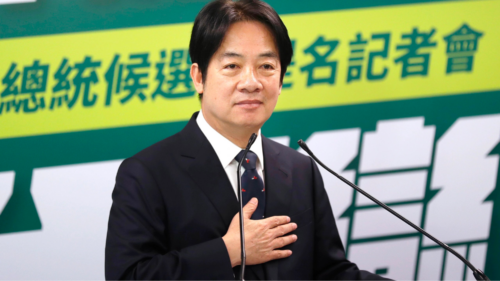China’s monopoly buster took on Alibaba, Tencent, and Meituan last year
The State Administration for Market Regulation this year started to exert its authority to address monopolistic behavior by internet platform companies.

Yesterday, the State Administration for Market Regulation (SAMR), a ministerial agency directly under the State Council responsible for supervision and management of the domestic market, released its anti-monopoly report for 2021. The report states that the agency dealt with 175 monopoly cases of various kinds in 2021, a year-on-year increase of 61.5%, and imposed fines and confiscations of 23.59 billion yuan ($3.53 billion).
- The most common type of case was illegal concentration of operators, which accounted for 107 of the 175 cases, for which the agency imposed a collective fine of 72.35 million yuan ($10.82 million).
- There were 11 horizontal monopoly agreement cases and 11 cases of abuse of market dominance, but these had significantly higher collective fines of 1.67 billion yuan ($3.26 billion) and 21.84 billion yuan ($250.38 billion), respectively.
- There were 46 cases of abuse of administrative power to exclude and restrict competition.
- The vast majority of all 175 cases occurred at the municipal government level (57%) and county government level (41%).
In 2021, SAMR paid particular attention to the “platform economy,” in which China’s huge tech giants hold enormous sway, investigating nearly 200 cases, and issuing punishments in 98 cases, with the main victim being Alibaba 阿里巴巴集团.
- The agency issued stiff fines to Alibaba (18.22 billion yuan/$2.72 billion) and Meituan 美团 (3.44 billion yuan/$515.12 million) for restricting competition on their platforms for ecommerce and food takeaways.
- The investigation into Alibaba commenced in December 2020, and SAMR found that the platform was abusing its dominant position in the market by prohibiting merchants on its platform from opening stores or participating in promotions on other platforms, and restricting competition using algorithms and other technical means.
- The agency reviewed 40 mergers and acquisitions involving the concentration of business among platform operators. In July, SAMR prohibited the merger of Tencent’s 腾讯 online gaming platform,Huya 虎牙直播 and livestreaming platform DouYu 斗鱼, as the move would have consolidated Tencent’s dominant position in the online gaming market. This was the first case of a merger being disallowed in the internet sector in China.
- In January 2021, the agency also commenced an investigation into Tencent’s July 2016 acquisition of shares in China Music Group 中国音乐集团 for suspected illegal concentration of operators, eventually imposing a fine of 500,000 yuan ($74,830) in July and ordering a copyright agreement between the two companies to be annulled.
Other notable cases in 2021 included:
- Yangtze River Pharmaceutical Group 扬子江药业, which was fined 3% of the company’s sales of the previous year, or 764 million yuan ($114.34 million), a record-high fine for the pharmaceutical industry, for implementing a monopoly agreement.
- Bull Electric 公牛电器 was likewise fined 3% of the company sales in the previous year, or 295 million yuan ($44.14 million), for monopolistic behavior in the domestic plugs and sockets industry.
The context
After more than 10 years of drafting and debates, China passed its first Anti-Monopoly Law in August 2007, and it took effect in August 2008. Since then, the regulations have been regularly updated:
- In 2011, the Ministry of Commerce (Mofcom) passed a series of interim rules on the procedures for evaluating cases involving concentration of business operators. The regulations consider a concentration of business operators to occur when certain thresholds are reached via M&As, acquisition of equities or assets, by contracts, or other means.
- In 2020, SAMR issued a new set of interim provisions on the review of concentrations of business operators, integrating a series of regulatory documents that were successively issued by Mofcom after the implementation of the Anti-Monopoly Law in 2008.
- In July 2021, a revised draft of the Anti-Monopoly Law proposed that the upper limit of fines for the concentration of business operators be significantly increased from a limit of 500,000 yuan ($77,000) to a limit of 10% of the previous year’s sales turnover — so it is likely that SAMR will issue even larger fines in the years to come.
- An ecommerce law came into effect in January 2019 to regulate China’s burgeoning online payments systems.
- The SAMR formulated new measures governing online transactions in May 2021, aiming to restrict China’s ecommerce giants from engaging in monopolistic behavior on their platforms.
The takeaway
Since 2008, the State Administration for Market Regulation has gradually been able to take on China’s ecommerce giants for their monopolistic behavior.
The agency now has teeth, and internet companies need to be fearful of its bite when they make plans for expansion.






